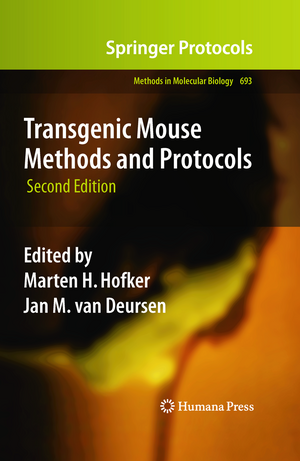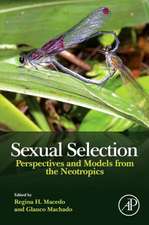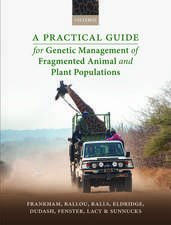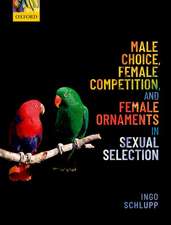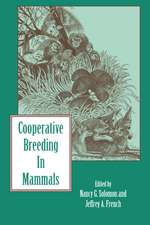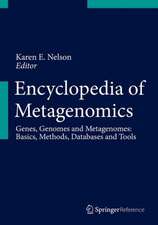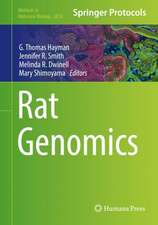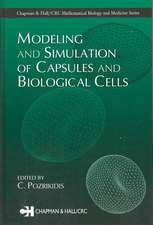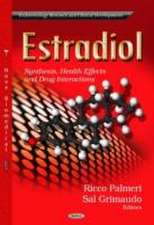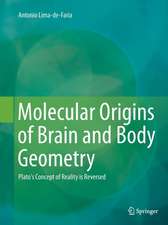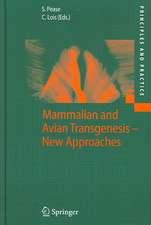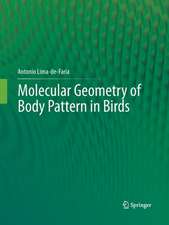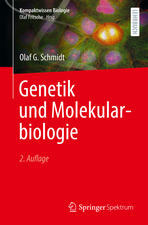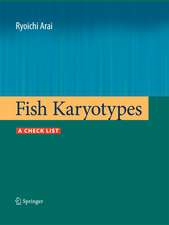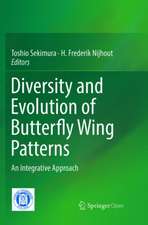Transgenic Mouse Methods and Protocols: Methods in Molecular Biology, cartea 693
Editat de Marten H. Hofker, Jan van Deursenen Limba Engleză Hardback – 17 noi 2010
| Toate formatele și edițiile | Preț | Express |
|---|---|---|
| Paperback (1) | 952.09 lei 6-8 săpt. | |
| Humana Press Inc. – 23 aug 2016 | 952.09 lei 6-8 săpt. | |
| Hardback (1) | 1231.47 lei 6-8 săpt. | |
| Humana Press Inc. – 17 noi 2010 | 1231.47 lei 6-8 săpt. |
Din seria Methods in Molecular Biology
- 9%
 Preț: 791.59 lei
Preț: 791.59 lei - 23%
 Preț: 598.56 lei
Preț: 598.56 lei - 20%
 Preț: 882.95 lei
Preț: 882.95 lei -
 Preț: 252.04 lei
Preț: 252.04 lei - 5%
 Preț: 802.69 lei
Preț: 802.69 lei - 5%
 Preț: 729.61 lei
Preț: 729.61 lei - 5%
 Preț: 731.43 lei
Preț: 731.43 lei - 5%
 Preț: 741.30 lei
Preț: 741.30 lei - 5%
 Preț: 747.16 lei
Preț: 747.16 lei - 15%
 Preț: 663.45 lei
Preț: 663.45 lei - 18%
 Preț: 1025.34 lei
Preț: 1025.34 lei - 5%
 Preț: 734.57 lei
Preț: 734.57 lei - 18%
 Preț: 914.20 lei
Preț: 914.20 lei - 15%
 Preț: 664.61 lei
Preț: 664.61 lei - 15%
 Preț: 654.12 lei
Preț: 654.12 lei - 18%
 Preț: 1414.74 lei
Preț: 1414.74 lei - 5%
 Preț: 742.60 lei
Preț: 742.60 lei - 20%
 Preț: 821.63 lei
Preț: 821.63 lei - 18%
 Preț: 972.30 lei
Preț: 972.30 lei - 15%
 Preț: 660.49 lei
Preț: 660.49 lei - 5%
 Preț: 738.41 lei
Preț: 738.41 lei - 18%
 Preț: 984.92 lei
Preț: 984.92 lei - 5%
 Preț: 733.29 lei
Preț: 733.29 lei -
 Preț: 392.58 lei
Preț: 392.58 lei - 5%
 Preț: 746.26 lei
Preț: 746.26 lei - 18%
 Preț: 962.66 lei
Preț: 962.66 lei - 23%
 Preț: 860.21 lei
Preț: 860.21 lei - 15%
 Preț: 652.64 lei
Preț: 652.64 lei - 5%
 Preț: 1055.50 lei
Preț: 1055.50 lei - 23%
 Preț: 883.85 lei
Preț: 883.85 lei - 19%
 Preț: 491.88 lei
Preț: 491.88 lei - 5%
 Preț: 1038.84 lei
Preț: 1038.84 lei - 5%
 Preț: 524.15 lei
Preț: 524.15 lei - 18%
 Preț: 2122.34 lei
Preț: 2122.34 lei - 5%
 Preț: 1299.23 lei
Preț: 1299.23 lei - 5%
 Preț: 1339.10 lei
Preț: 1339.10 lei - 18%
 Preț: 1390.26 lei
Preț: 1390.26 lei - 18%
 Preț: 1395.63 lei
Preț: 1395.63 lei - 18%
 Preț: 1129.65 lei
Preț: 1129.65 lei - 18%
 Preț: 1408.26 lei
Preț: 1408.26 lei - 18%
 Preț: 1124.92 lei
Preț: 1124.92 lei - 18%
 Preț: 966.27 lei
Preț: 966.27 lei - 5%
 Preț: 1299.99 lei
Preț: 1299.99 lei - 5%
 Preț: 1108.51 lei
Preț: 1108.51 lei - 5%
 Preț: 983.72 lei
Preț: 983.72 lei - 5%
 Preț: 728.16 lei
Preț: 728.16 lei - 18%
 Preț: 1118.62 lei
Preț: 1118.62 lei - 18%
 Preț: 955.25 lei
Preț: 955.25 lei - 5%
 Preț: 1035.60 lei
Preț: 1035.60 lei - 18%
 Preț: 1400.35 lei
Preț: 1400.35 lei
Preț: 1231.47 lei
Preț vechi: 1501.79 lei
-18% Nou
Puncte Express: 1847
Preț estimativ în valută:
235.64€ • 246.65$ • 196.13£
235.64€ • 246.65$ • 196.13£
Carte tipărită la comandă
Livrare economică 01-15 aprilie
Preluare comenzi: 021 569.72.76
Specificații
ISBN-13: 9781607619734
ISBN-10: 1607619733
Pagini: 322
Ilustrații: XI, 352 p.
Dimensiuni: 178 x 254 x 28 mm
Greutate: 0.84 kg
Ediția:2nd ed. 2011
Editura: Humana Press Inc.
Colecția Humana
Seria Methods in Molecular Biology
Locul publicării:Totowa, NJ, United States
ISBN-10: 1607619733
Pagini: 322
Ilustrații: XI, 352 p.
Dimensiuni: 178 x 254 x 28 mm
Greutate: 0.84 kg
Ediția:2nd ed. 2011
Editura: Humana Press Inc.
Colecția Humana
Seria Methods in Molecular Biology
Locul publicării:Totowa, NJ, United States
Public țintă
Professional/practitionerCuprins
Introduction: Strategies for developing genetically modified mice.- Genetic Modification of the Mouse; General Technology: Pronuclear and Blastocyst Injection.- Generation of chimeras by aggregation of embryonic stem cells with diploid or tetraploid mouse embryos.- Cryopreservation of mouse spermatozoa and In vitro fertilization.- Autopsy and histological analysis of the transgenic mouse.- Transgene design.- Inducible Transgenic Mouse Models.- Lentiviral transgenesis.- Transgenesis in Mouse Embryonic Stem Cells.- Engineering BAC Reporter Gene Constructs for Mouse Transgenesis.- Targeting Vector Construction Through Recombineering.- Generating Conditional Knockout Mice.- Hypomorphic mice.- MICER Targeting Vectors for Manipulating the Mouse Genome.- Knockin approaches.- Generation of a series of knockin alleles using RMCE in ES cells.- Selection of targeted mutants from a library of randomly mutagenized ES cells .- Generation of genetically modified rodents using random ENU mutagenesis.- Bone marrow transplantations to study gene function in hematopoietic cells.- Adenovirus Mediated Gene Transfer.
Recenzii
From the reviews of the second edition:
“Provided us with the valuable second edition of Transgenic mouse … . A great merit of this book is then the fact that the two Editors decided to devote some chapters to this basic topic! … I strongly suggest to have a copy of this book to those would like to enter the fascinating field of transgenesis; those already active in the field will anyhow surely find interesting aspects to deal with by comparing the techniques they are using with the suggested novelties here presented.” (Carlo Alberto Redi, European Journal of Histochemistry, Vol. 55, 2011)
“Provided us with the valuable second edition of Transgenic mouse … . A great merit of this book is then the fact that the two Editors decided to devote some chapters to this basic topic! … I strongly suggest to have a copy of this book to those would like to enter the fascinating field of transgenesis; those already active in the field will anyhow surely find interesting aspects to deal with by comparing the techniques they are using with the suggested novelties here presented.” (Carlo Alberto Redi, European Journal of Histochemistry, Vol. 55, 2011)
Textul de pe ultima copertă
The generation of genetically modified mice is absolutely crucial to gene function studies today, primarily because mice are genetically similar to man and because gene function studies in mice are in the context of a whole organism, making them particularly useful. In Transgenic Mouse Methods and Protocols, Second Edition, expert research explore current advances in the field through detailed laboratory protocols. Chapters provide a general introduction outlining how to deal with mice and how to generate transgenic mouse models, explore the generation of conditional and induced knockout and transgenic mice, and offer alternative routes to studying gene function in mice. Composed in the highly successful Methods in Molecular Biology™ series format, each chapter contains a brief introduction, step-by-step methods, a list of necessary materials, and a Notes section which shares tips on troubleshooting and avoiding known pitfalls.Comprehensive and state-of-the-art, Transgenic Mouse Methods and Protocols, Second Edition is the ideal guide for all researchers interested in the latest information about the production and analysis of transgenic and knockout mice.
Caracteristici
Fully updated from the first edition to offer cutting-edge methods for generation of transgenic mouse models Provides descriptions of how to generate conventional knockout and transgenic mice Includes detailed protocols for vector preparation of different kinds of mouse models Methods to control expression patterns of the transgenes are provided Includes supplementary material: sn.pub/extras
